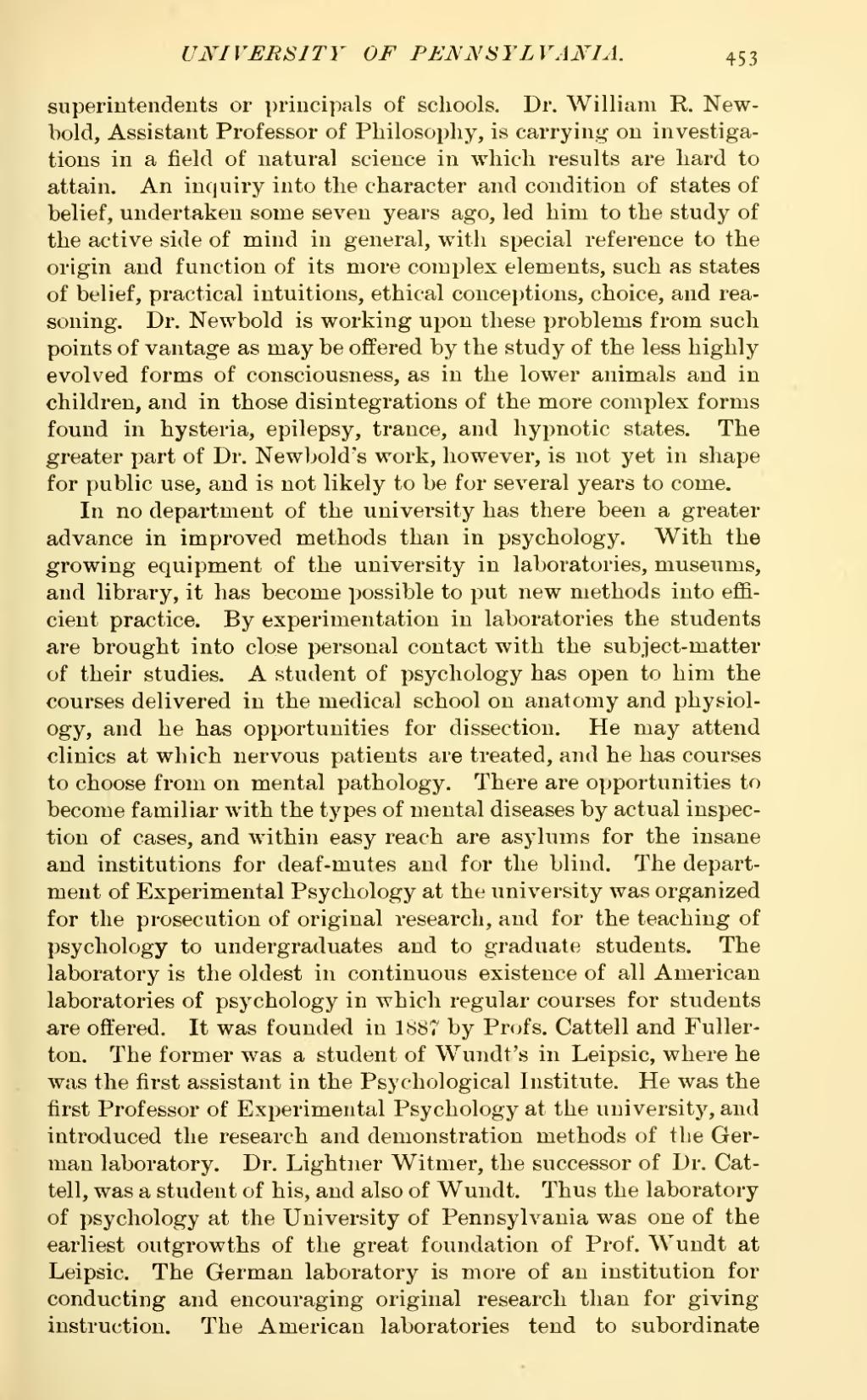superintendents or principals of schools. Dr. William R. Newbold, Assistant Professor of Philosophy, is carrying on investigations in a field of natural science in which results are hard to attain. An inquiry into the character and condition of states of belief, undertaken some seven years ago, led him to the study of the active side of mind in general, with special reference to the origin and function of its more complex elements, such as states of belief, practical intuitions, ethical conceptions, choice, and reasoning. Dr. Newbold is working upon these problems from such points of vantage as may be offered by the study of the less highly evolved forms of consciousness, as in the lower animals and in children, and in those disintegrations of the more complex forms found in hysteria, epilepsy, trance, and hypnotic states. The greater part of Dr. Newbold's work, however, is not yet in shape for public use, and is not likely to be for several years to come.
In no department of the university has there been a greater advance in improved methods than in psychology. With the growing equipment of the university in laboratories, museums, and library, it has become possible to put new methods into efficient practice. By experimentation in laboratories the students are brought into close personal contact with the subject-matter of their studies. A student of psychology has open to him the courses delivered in the medical school on anatomy and physiology, and he has opportunities for dissection. He may attend clinics at which nervous patients are treated, and he has courses to choose from on mental pathology. There are opportunities to become familiar with the types of mental diseases by actual inspection of cases, and within easy reach are asylums for the insane and institutions for deaf-mutes and for the blind. The department of Experimental Psychology at the university was organized for the prosecution of original research, and for the teaching of psychology to undergraduates and to graduate students. The laboratory is the oldest in continuous existence of all American laboratories of psychology in which regular courses for students are offered. It was founded in 1887 by Profs. Cattell and Fullerton. The former was a student of Wundt's in Leipsic, where he was the first assistant in the Psychological Institute. He was the first Professor of Experimental Psychology at the university, and introduced the research and demonstration methods of the German laboratory. Dr. Lightner Witmer, the successor of Dr. Cattell, was a student of his, and also of Wundt. Thus the laboratory of psychology at the University of Pennsylvania was one of the earliest outgrowths of the great foundation of Prof. Wundt at Leipsic. The German laboratory is more of an institution for conducting and encouraging original research than for giving instruction. The American laboratories tend to subordinate
